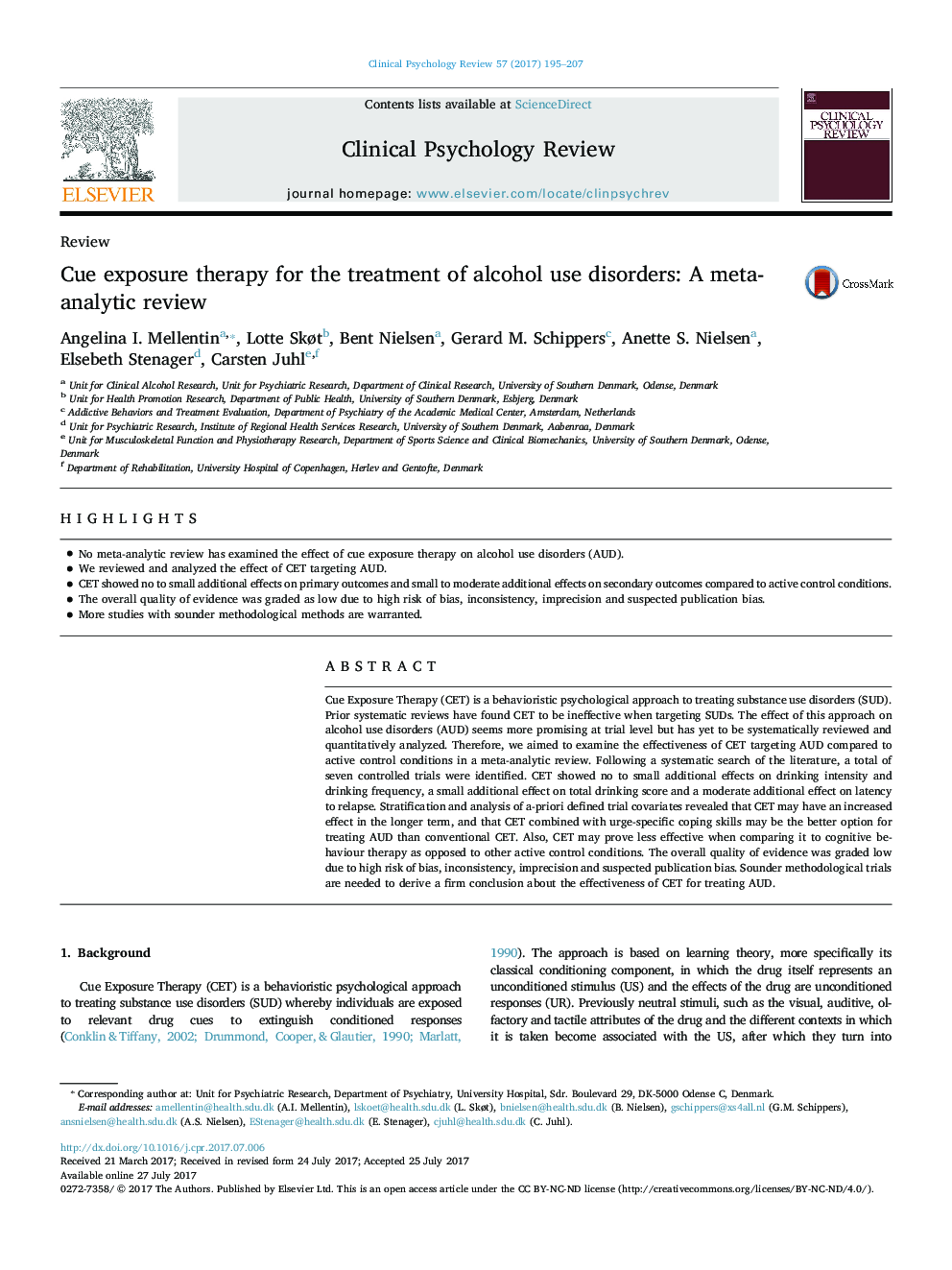| کد مقاله | کد نشریه | سال انتشار | مقاله انگلیسی | نسخه تمام متن |
|---|---|---|---|---|
| 5038451 | 1472834 | 2017 | 13 صفحه PDF | دانلود رایگان |

- No meta-analytic review has examined the effect of cue exposure therapy on alcohol use disorders (AUD).
- We reviewed and analyzed the effect of CET targeting AUD.
- CET showed no to small additional effects on primary outcomes and small to moderate additional effects on secondary outcomes compared to active control conditions.
- The overall quality of evidence was graded as low due to high risk of bias, inconsistency, imprecision and suspected publication bias.
- More studies with sounder methodological methods are warranted.
Cue Exposure Therapy (CET) is a behavioristic psychological approach to treating substance use disorders (SUD). Prior systematic reviews have found CET to be ineffective when targeting SUDs. The effect of this approach on alcohol use disorders (AUD) seems more promising at trial level but has yet to be systematically reviewed and quantitatively analyzed. Therefore, we aimed to examine the effectiveness of CET targeting AUD compared to active control conditions in a meta-analytic review. Following a systematic search of the literature, a total of seven controlled trials were identified. CET showed no to small additional effects on drinking intensity and drinking frequency, a small additional effect on total drinking score and a moderate additional effect on latency to relapse. Stratification and analysis of a-priori defined trial covariates revealed that CET may have an increased effect in the longer term, and that CET combined with urge-specific coping skills may be the better option for treating AUD than conventional CET. Also, CET may prove less effective when comparing it to cognitive behaviour therapy as opposed to other active control conditions. The overall quality of evidence was graded low due to high risk of bias, inconsistency, imprecision and suspected publication bias. Sounder methodological trials are needed to derive a firm conclusion about the effectiveness of CET for treating AUD.
Journal: Clinical Psychology Review - Volume 57, November 2017, Pages 195-207